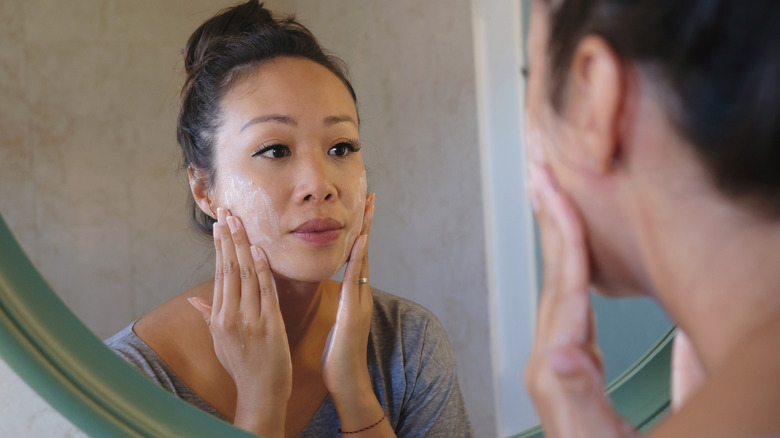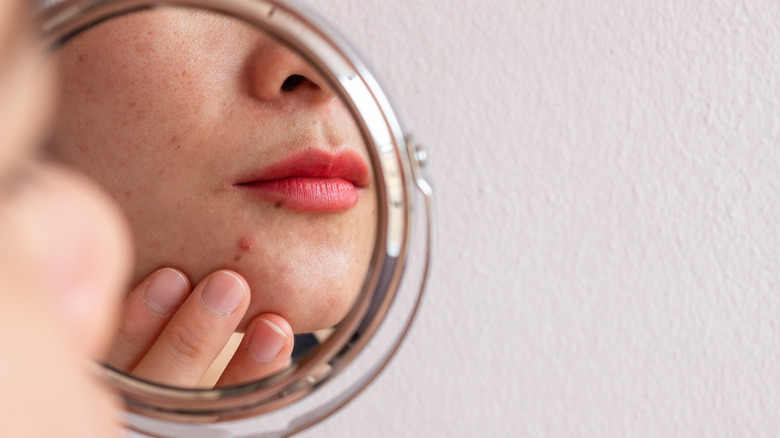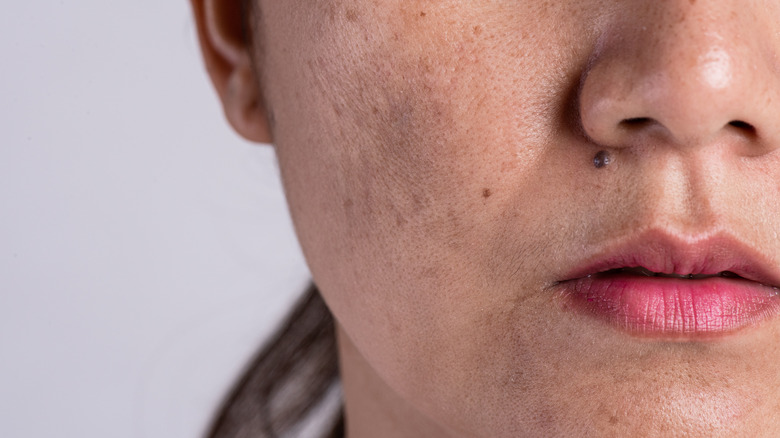These Common Skincare Ingredients Could Be Doing More Harm Than Good
Skincare aficionados and newbies, beware: just because you think you're using the right products in your skincare regimen, that doesn't necessarily mean it's true. Even the most popular, revered, and well-intentioned ingredients in your skincare routine could be causing more harm than good. The adverse effects they can cause often lead us to use more products, and thus, the skin-wrecking cycle continues.
Not all skincare formulas are created equal. So, generally speaking, it's important to allow for some room to experiment, assess, and change or maintain your routine based on how your skin reacts to the products you use. However, if you've been chronically struggling with excess oil, breakouts, or skin irritation, a few key ingredients might be to blame.
More specifically, you might want to check whether your regimen contains vitamin C, biotin, or cocoa or shea butter. Because despite the buzzword status of these ingredients, they might not be right for you.
Red, irritated, acne-prone skin? Check for vitamin C and biotin
Vitamin C is more than just a common cold antidote — it's also a highly sought-after skincare ingredient because of its anti-inflammatory, brightening, and skin-renewing qualities. However, it isn't for everyone. Vitamin C is highly acidic, which means prolonged exposure can cause itchiness, redness, and general irritation for those with sensitive skin, per Medical News Today.
Skin that's left raw and inflamed from vitamin C is more prone to breakouts, particularly for those with sensitive skin. If you're noticing adverse side effects after using a product that contains vitamin C, it's best to stop using the product and let your skin recuperate before finding a vitamin C serum appropriate for sensitive skin.
Unfortunately, biotin is another well-loved ingredient that can be just as detrimental. Taking biotin every day can help promote strong, healthy skin and nails, and it can also help your body process carbs, proteins, and fats into energy. But according to a study published in The Journal of Nutrition, excess biotin might impact the body's ability to regulate its oil glands, and too much sebum can lead to excess oiliness and breakouts. While the Dermatology Clinic states that this research is limited and not hard and fast proof of biotin's connection to acne, it's worth limiting your biotin use if you notice excess breakouts.
Oily skin and clogged pores? Shea and cocoa might be to blame
Shea and cocoa butters have a cult following for their highly moisturizing qualities, but for oily or acne-prone skin, it's best to avoid these ultra-rich ingredients. Shea butter is made from oily kernels found within the African shea tree, while cocoa butter is made from — you guessed it — cocoa beans. While these ingredients are excellent moisturizers for some, not all skin reacts the same way to these intensely hydrating butters.
Board-certified dermatologist Corey Hartman told The Zoe Report that these natural, plant-based butters are typically fine for use on the body. But when it comes to the face, their high-fat content and comedogenic qualities can clog pores, cause breakouts, and exacerbate existing acne. If you're finding your skin breaking out more frequently with shea or cocoa butter use, Hartman recommends trying less irritating moisturizing agents like hyaluronic acid, ceramides, or glycerin.
Simply put, just because a skincare ingredient is popular doesn't mean it's guaranteed to work on your unique skin. And that's okay! Despite what their name might imply, cult-favorite ingredients aren't proven to work on the general masses. Listen to your skin, and don't be afraid to try something less buzzworthy in your routine.


